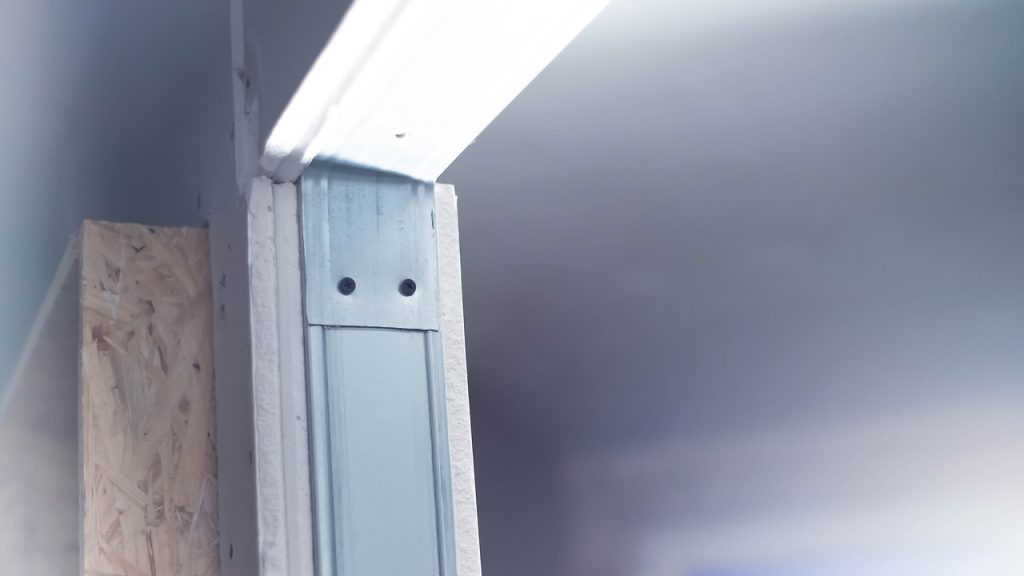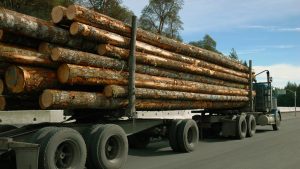A Canadian company that lost its fight to have tariffs imposed on 54-inch drywall boards allegedly being dumped into Western Canada is worried the practice continues and has not ruled out taking further action.
CertainTeed Gypsum Canada said in a statement prepared for the Journal of Commerce that it is still reviewing a decision made by the Canadian International Trade Tribunal (CITT) and is waiting for the reasons.
“CertainTeed remains concerned with U.S. dumping of 54-inch drywall in Western Canada and the distortion of the Western Canadian drywall market,” said Richard Juggery, chief executive officer of CertainTeed Canada.
“We continue to believe we have a strong case that will restore free and fair trade and create and maintain jobs in Western Canada. CertainTeed will weigh its options pending the release of CITT reasoning.”
Juggery indicated the company, headquartered in Mississauga, Ont., and the only producer of gypsum board products in Western Canada, would like to expand in Canada, but the current situation prevents that.
“Ultimately, CertainTeed would like to make a significant investment that would bring additional good, middle-class jobs to Western Canada, but the economics of the investment continues to be jeopardized by dumped U.S. product.”
The company statement noted it has maintained a strong commitment to Canada since 1929, creating jobs and manufacturing products within the country, and it is also the only gypsum manufacturer to have kept all its western Canadian plants and operations open while companies south of the border closed theirs after the financial crisis in 2008 and downturn in the U.S. housing market.
CertainTeed has never made the wide boards in Canada, but claimed they were being dumped into the country from the U.S. and, as a result, they were being stymied from investing and hiring in Western Canada.
Anytime there’s a victory against adding tariffs to materials, it’s frankly a victory for the consumer
— Casey Edge
Victoria Residential Builders Association
The company complained and in June the Canada Border Services Agency (CBSA) launched an investigation into whether 54-inch gypsum boards originating in or exported from the U.S. were being dumped in Canada at prices that were substantially below what was being charged in the domestic American market.
CertainTeed complained the allegedly dumped goods caused “material retardation” to the domestic industry in Western Canada, and therefore the production of 54-inch boards in Western Canada was not viable.
But in August, the CITT ruled that evidence presented at a preliminary injury inquiry did not prove that dumping of the drywall boards into British Columbia, Alberta, Saskatchewan, Manitoba and the Yukon and Northwest territories injured the domestic drywall industry.
The CITT ruled that the evidence “did not disclose a reasonable indication that the dumping of the subject goods has caused injury or retardation or is threatening to cause injury to the domestic industry.”
While the ruling was disappointing for CertainTeed, it was a victory for the residential building industry. In 2016, CertainTeed had raised concerns about 48-inch boards and the CITT validated the complaint, imposing duties of 95 to 324 per cent on U.S. importers who were found to be dumping boards into Canada. The result of the CITT ruling then was that drywall prices increased dramatically in Western Canada.
Neil Moody, chief executive officer of the Canadian Home Builders’ Association of B.C. (CHBA), said he’s pleased with the CITT decision because it would have led to higher prices for drywall and affected the economy.
“If provisional duties had been set by CBSA, they would have taken place in mid-September. It would have applied to all shipments landed in Canada on or after that date,” he explained.
“The duties would have been particularly damaging with no phase-in period to allow all affected to adjust, such as those with fixed-price contracts.”
Moody said all aspects of the supply chain for the residential construction sector would have been affected.
“There is no domestic production of like goods in Western Canada, so either product is imported or brought in from other parts of Canada, which has its own shipping and logistics costs. An increased price as a result of the duty would have meant additional costs for homeowners signing new construction or renovation contracts.”
Moody said the situation would have caused irreparable harm for builders and contractors with fixed-price contracts, as they would have had to absorb the cost, leading to potential financial damage to their businesses. He figures the savings as a result of the decision could reasonably be estimated in the millions.
“It is difficult to predict the additional costs because the duties were not implemented,” he said. “However, last time CHBA’s and industry intervention contributed to an overall $330-million savings in Western Canada for builders, renovators, contractors and most importantly, their client homebuyers.”
Casey Edge, executive director of the Victoria Residential Builders Association, said homebuilders are staunchly opposed to the tariffs because it would raise the price of drywall which, in turn, hikes the cost of homes.
“At the end of the day, it’s more regulation,” he said. “It’s bad enough that we struggle to find land as a result of government regulation, but then you have tariffs on drywall or any product that increases the cost and then people wonder why we have a housing affordability crisis in Canada or certainly in British Columbia.”
In the end, said Edge, consumers would end up footing the extra cost of purchasing drywall, as it would have to be factored into the price of homes.
“Anytime there’s a victory against adding tariffs to materials, it’s frankly a victory for the consumer,” he said.











Recent Comments
comments for this post are closed